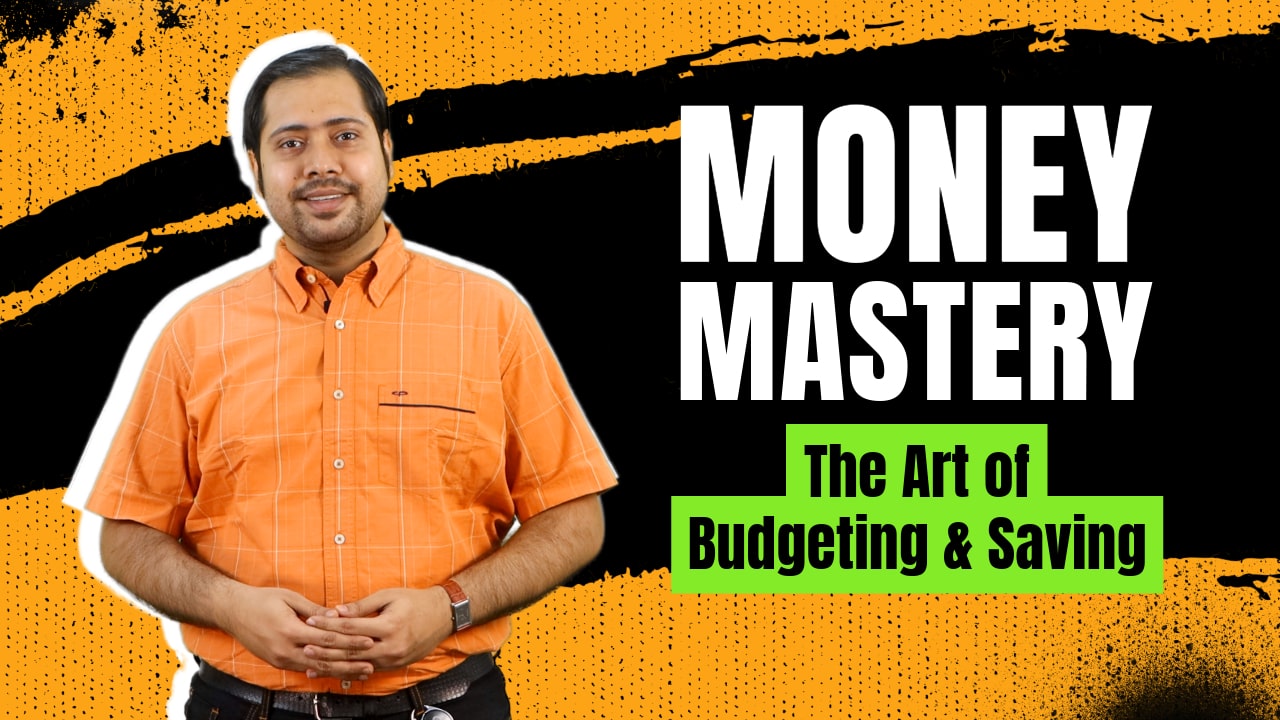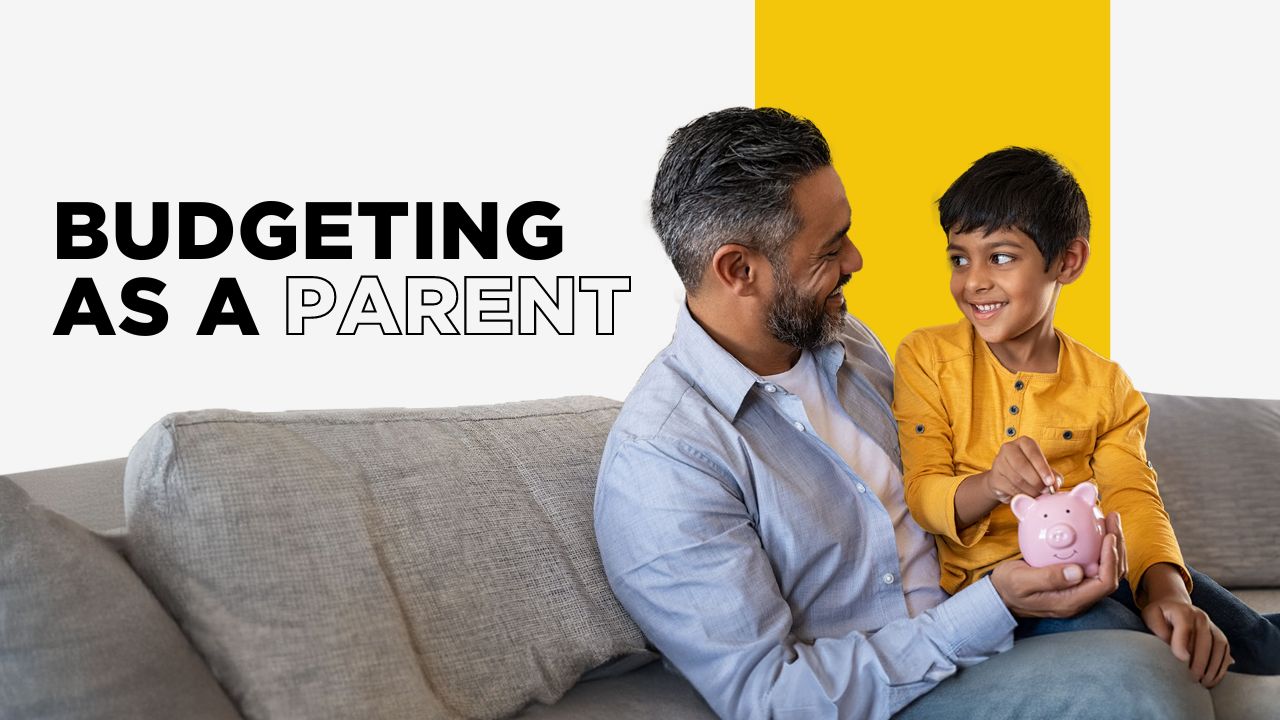Foundation of Financial Literacy
Episodes

E01: Money Management 101
04 mins
Managing money might seem intimidating but it could be easier than you think. With the right approach, you could simplify your finances and work toward a secure future. In this video, we’ll break down the basics of money management, covering essential topics such as budgeting, saving, investing, and managing debt. You might learn how to create a budget, set limits for different expenses, and stick to it. We’ll also explore the importance of building an emergency fund and saving for specific goals like vacations or home purchases. Investing is another key focus. We’ll discusses options like mutual funds, or PPF, emphasising the importance of starting early and diversifying your portfolio. Additionally, we’ll highlight strategies for managing debt, including prioritising high-interest loans and negotiating better terms. This video will also cover insurance and tax planning, crucial for financial protection and saving money. Lastly, we’ll explain long-term financial planning, including retirement and estate planning, to secure your future. By following these steps and monitoring your finances regularly, you could stay on track and make informed decisions.

E02: Money Mastery The Art of Budgeting and Saving
05 mins
Managing your finances is a crucial skill, especially in a diverse and dynamic country like India. In this video, we’ll cover the essentials of budgeting and saving to help you take control of your financial future. You might learn how to track income and expenses, create a practical budget, and allocate funds toward essential expenses, savings, and discretionary spending. We’ll also introduce saving strategies, like setting specific goals and automating savings, that might help build a strong financial foundation. Additionally, we’ll explore investment options such as mutual funds, fixed deposits, and PPF, that could guide you to grow your money over time. Understanding tax planning could also be essential. We’ll discuss how to optimise tax benefits through instruments like ELSS and NPS. Managing debt and setting SMART financial goals are other crucial elements we’ll explore, that could help you achieve long-term objectives. Financial discipline and awareness of cultural and socio-economic factors could empower you to make informed decisions. By mastering budgeting and saving, you might be able to pave the way to financial freedom and security.

E03: Buying Your First Car What Should You Know
03 mins
Buying your first car could be an exciting milestone, but it requires careful planning and smart decision-making. In this video, we’ll talk you through every step of the process, from setting a budget to driving off in your dream car. You could start by determining how much you could comfortably spend. You might have to consider not just the car’s price but also additional costs like fuel, insurance, maintenance, and registration. A good rule of thumb might be to allocate 10-15% of your monthly income for your car loan EMI. We’ll give you some insights that might help choose the right car for your needs. Be it a compact hatchback or a spacious SUV. Financing is another critical aspect, and we’ll explore car loans that cover up to 80-90% of the car’s on-road price. If you’re considering a used car, we’ll explain how used car loans differ. We’ll also talk about dealer selection, negotiation tips, necessary documentation, and the importance of insurance. We’ll discuss registration with the RTO and the significance of after-sales service to keep your car in good shape. A working knowledge about these aspects could make your first car purchase a smooth experience!

E04: First Time Homebuyer Discover the Secrets to Success
03 mins
Buying your first home could involve meticulous planning and consideration. In this video, we’ll walk you through the process. You could start by determining your budget. Analysing your monthly income and expenses might help you figure out how much you can comfortably afford. You could aim to keep housing costs within 28-30% of your gross income and save at least 20% of the property value for a down payment. You might need to account for additional costs like stamp duty, registration fees, and maintenance charges. Next, we’ll talk about location. You could choose areas with good connectivity to workplaces, schools, and hospitals, along with essential amenities like parks and shopping centres. Safety and potential future developments might also be important considerations. We’ll discuss features such as size, layout, and amenities that meet your current needs while allowing room for future growth. We’ll explore the process of home-buying, including applying for a home loan, conducting property inspections, and reviewing legal documents. Lastly, we’ll look into hidden costs like property taxes and utility setup fees. By staying informed and consulting experts, you might be able to navigate your journey to homeownership in a confident manner.

E05: Budgeting as a Parent
03 mins
Managing family life and finances could feel overwhelming but with some budgeting strategies, you could find a balance. In this video, we’ll explore tips for budgeting with a growing family. You’ll learn how you could start by tracking your income and expenses using tools like Excel or budgeting apps. You could set aside funds for daily necessities such as groceries, school fees, medical costs, etc. Regular savings through SIPs or long-term investments in PPF and NPS could help secure your family’s future. We’ll also dive into savings and investment options, including FDs, mutual funds, and Sovereign Gold Bonds. We’ll explore Education Savings Plans or ULIPs that could help you combine insurance and investment. We’ll discuss how comprehensive health insurance with add-ons like maternity benefits could offer valuable coverage. We’ll look into retirement planning and debt management that are equally crucial. You could balance your NPS contributions with EPF and manage existing loans by seeking better interest rates. Additionally, we’ll uncover how estate planning through wills and trusts might ensure your family’s security. Finally, we’ll highlight the importance of educating your children about financial aspects from an early age. This could set them up for future success. With these steps, you could chart your course through the financial journey of parenting.

E06: The Ultimate Checklist for Planning Your Dream Vacation
04 mins
Planning a trip could feel overwhelming, but a simple checklist might make things easier. In this video, we’ll take you through a travel checklist that could help you plan your next getaway with ease. From picking the perfect destination to setting a budget that works for you, we’ll cover how small choices could make a big difference. You’ll learn how budgeting could help you allocate funds for travel, stay, food, and activities while also unlocking travel deals and discounts. We’ll also look at how booking travel and accommodation at the right time could save you money. You’ll see how travel and hotel prices might change depending on the season. We’ll uncover how travel credit cards could unlock perks like lounge access, discounts on bookings, memberships, etc. We’ll also explore how tracking expenses could keep your budget on point and why travel insurance might be a smart backup for unexpected hiccups. You’ll learn about features like trip cancellation coverage, delayed baggage protection, and medical emergency assistance that could come in handy. A well-planned trip could mean fewer worries and more time to enjoy the experience. This checklist might help streamline your travel plans and ensure a smoother journey.

E07: How to Plan Your Finances for the New Financial Year
03 mins
With a fresh financial year in motion, planning your finances might feel more important than ever. In this video, we’ll take you through a few practical steps that might help you get started. We’ll begin with setting financial goals. Whether it’s building an emergency fund, saving for a home, or planning for retirement, having clarity could make all the difference. We’ll talk about budgeting and tracking your expenses, as knowing where your money goes might help you cut back on what’s not needed. We’ll also explore the two tax regimes and how choosing between them could affect your savings. We’ll discuss some investments and understand what to look for, when to realign, and how your goals and risk appetite might influence your choices. We’ll also touch upon reviewing your insurance and emergency funds to ensure your financial safety nets are strong. Lastly, we’ll address how keeping track of everything through regular check-ins might help you stay on course. By the end, planning your finances for the year might not feel as overwhelming as it did before.
What to Watch Next
All


























